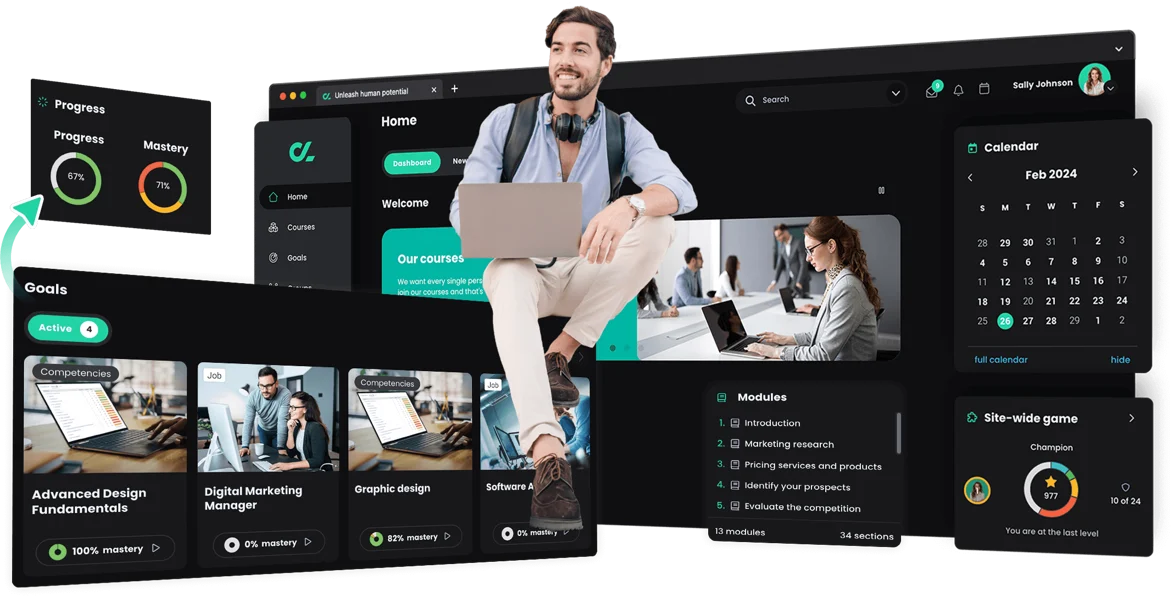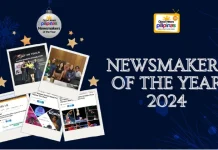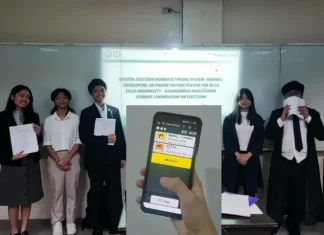
When critics blame remote learning technology for isolating students, they miss the point. The underappreciated superpower of next-generation “edtech” is in fact, connection.
The Covid-19 stay-at-home orders caught the vast majority of educational institutions underprepared. For many the transition to remote learning came literally overnight; no wonder there were imperfections.
It would be a mistake, however, to dismiss future iterations of remote learning tech. In a recent survey by McKinsey, 65 percent of students and 90 percent of educators agreed that learning technologies have a positive effect on connectivity and community building.
Advances in edtech, spurred on by lessons learned during Covid, offer the potential to take this further – to reimagine the way students, teachers, and parents communicate and offer a community-driven approach to education.
Today, intelligent learning platforms (ILPs) not only enable students to continue learning remotely but bring the physical classroom experience to life online and help students interact and collaborate on a richer, more personalised level.
For example, with an ILP, students are encouraged to engage with one another through chat functions, discussion forums, activity displays, and dedicated groups and channels for specific topics. Learners can share problems and solutions with one another, supporting their peers as reciprocal mentors on topics they have mastered and gathering insights on areas they are struggling with. This boosts students’ communication and problem-solving skills while helping to consolidate their own knowledge. They can see what their peers are learning, engaging their own curiosity (and perhaps a competitive streak!) to explore possibilities open to them.
Students can work collaboratively and asynchronously, creating projects together in their own time without regard for geographical constraints. Building friendships with learners from different locales and backgrounds gives access to unfamiliar perspectives – engaging natural curiosity.
When students learn remotely, real engagement may depend on available forums for connecting with each other. At the same time, keeping parents informed and up-to-date with their child’s progress is key. The importance of parental involvement in a child’s education is widely documented, with some research even suggesting that family engagement in a child’s education is a better predictor of academic achievement than socioeconomic status. ILPs help to bring parents along their child’s education journey, making it easy for teachers to share real-time reports and feedback with parents. This can open more opportunities for dialogue on topics raised by lessons.
ILPs also reduce the costs to the learner of classroom absences. Remote students have the choice of numerous devices through which they can still access their lessons and contact teachers and classmates. Their learning journey and school community are no longer anchored to physical school buildings. An inability to physically attend school, for whatever reason, will no longer preclude a student from engaging in a learning community.
Educators will know that a request for student feedback – even a simple question such as “Do you understand the instructions for this task?” – can meet with stony silence. Students are often reluctant to raise their heads above the parapet to admit before their peers that they are struggling with a concept or topic. This reluctance can snowball into more serious issues if students do not feel empowered to communicate with their educators. ILPs offer a solution: features such as polling tools can give instant, private feedback whilst freeing students from classroom pressures. Messaging functions broaden lines of teacher-student dialogue, strengthening their relationships by affording more transparency and discreet communication. Learners can voice opinions and concerns they wouldn’t necessarily be confident enough to share in an in-person learning environment.
Thus do ILPs give educators better, individualized views of student progress, identifying gaps between what each student is expected to know and their current level of knowledge. Providing an at-a-glance view of assignment completion and assessment results flags potential hurdles in each student’s learning journey and makes them far less likely to fall behind. Similarly, students achieving above-expected levels can have automatic access to assignments and topics that stretch their knowledge, encouraging them to fulfil their potential. Educators are empowered to understand each student’s needs and tailor individual learning journeys accordingly. As a result, each learner can thrive at a pace suited to them.
Edtech has the potential to make communication more transparent and more streamlined. From resolving minor classroom misunderstandings, to discreetly flagging potential gaps in attainment, to ensuring all students remain engaged in the learning process, ILPs are capable of transforming the online learning experience. As well as strengthening bonds between learners, educators, and parents, ILPs offer learners connections with distributed peers – offering admittance to a brand new, richly rewarding global classroom.
READ MORE about CYPHER Learning AI-Assisted Learning:
- Schools of the Future: How Next-Generation Competency-Based Learning is Transforming Education
- The Future of AI and Education
- 2024: The Year AI Transforms Education and Work – Insights from CYPHER Learning’s CEO
About CYPHER Learning
CYPHER Learning exists to give learners the power to succeed in a rapidly changing world. Trainers, learning and development (L&D) professionals, and educators get everything they need in one platform to deliver faster, more personalized, and better learning outcomes. The company provides the only all-in-one AI learning platform that is easy to use, beautifully designed, and built to power hundreds of millions of learning moments every day. Create courses faster. Train and teach better. Learn even quicker. Experience the CYPHER Learning “just in time, just for you, just the way you want to learn” approach that puts people first. See the modern learning platform at www.cypherlearning.com. Follow us on X and LinkedIn.
Be part of our vibrant Good News Pilipinas community, celebrating the best of the Philippines and our global Filipino heroes. As winners of the Gold Anvil Award and the Lasallian Scholarum Award, we invite you to engage with us and share your inspiring stories. For stories Making Every Filipino Proud, reach out to GoodNewsPilipinas.com via Facebook, Twitter, Instagram, TikTok, YouTube, and LinkedIn. LinkTree here. Let’s spread good news together!










